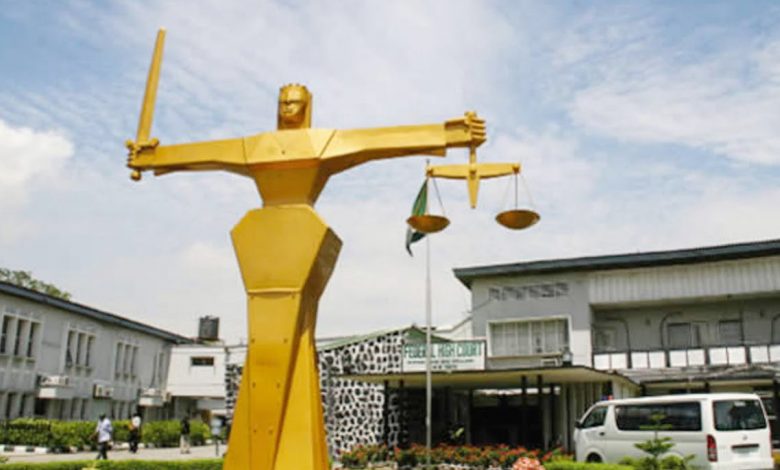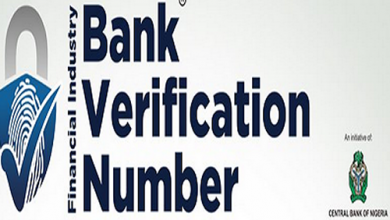
10 Factors Affecting Judicial Review in Nigeria
Factors Affecting Judicial Review in Nigeria- Judicial review refers to the process by which law courts in Nigeria have the power to review and potentially invalidate laws and other government actions which they consider unconstitutional. This power is granted by the constitution and it makes the judiciary an independent arm of government that has the authority to uphold the rule of law and protect the rights of citizens.
The courts in Nigeria also have the power to review the activities of the executive and legislative branches of government and may declare any action that is inconsistent with the Constitution to be void.
👉 Relocate to Canada Today!
Live, Study and Work in Canada. No Payment is Required! Hurry Now click here to Apply >> Immigrate to CanadaRead Also: Factors That Affect The Teaching And Learning Of English Language In Nigerian Schools
Meaning of Judiciary
The judiciary is the arm of government responsible for interpreting the law. It comprises the court system and all other individuals who make up the system, such as judges, magistrates, and other legal practitioners. The judiciary is an independent arm of government and its members are appointed in a way that ensures their independence from political activities and influence.
What Is Judicial Review?
Judicial review is the power of a court to overhaul and invalidate regulations, and other government actions that it considers to be unconstitutional. This power is based on the idea that the judiciary is responsible for interpreting the Constitution, and that it must ensure that the activities of the other arms of government are constitution compliant.
Read Also: 4 Factors Affecting Cost of Building Construction in Nigeria
Key Players in the Judicial System
In Nigeria, the key players in the judicial system include:
- The Judiciary: The judiciary comprises the courts at the federal and state levels, as well as the magistrates and other judges who preside over cases in court.
- The Legal Practitioners: This comprises barristers, solicitors, and other legal practitioners who represent clients in court.
- The Ministry of Justice: The ministry of justice is the government department responsible for overseeing the management and administration of justice in Nigeria.6 Best Shop Basmati Rice in Nigeria and their price
- The Nigerian Bar Association (NBA): The Nigerian Bar Association is the professional association for lawyers in Nigeria. They work hand in glove with the Ministry of Justice to administer justice in Nigeria.
- The Nigerian Police Force: The Nigerian Police is responsible for maintaining public peace, and order and enforcing laws. They also investigate and may detain offenders.
Read Also: 11 Factors Affecting Economic Growth in Nigeria
Principles of Judicial Review
Several key principles of judicial review are commonly recognized, some of them are found below
- Principle of Separation of powers: This principle states that the judiciary is an independent arm of government that has the power to review the actions of the other arms of government
- Supremacy of the Constitution: This principle states that the Constitution is the highest law of the land and all other laws are subject to it.JAMB Portal
- Principle of Fairness and impartiality: This principle states that the judicial review process should be fair and devoid of impartiality and that all parties should have equal opportunities to be heard.
- Principle of Public interest: This principle says that the judiciary should consider the interest of the public when making decisions and try to strike a balance between the needs of the individuals and society.
History of Judicial Review in Nigeria
Judicial review in Nigeria can be traced to the colonial period when the British introduced a system of courts patterned according to their western style. The judicial system at this period was based on the principles of the common law of Britain and it intended to serve the interests of the colonial government.
👉 Relocate to Canada Today!
Live, Study and Work in Canada. No Payment is Required! Hurry Now click here to Apply >> Immigrate to CanadaAfter Nigeria’s independence in 1960, the new government enshrined the principles of separation of powers in the constitution which made the powers of the various arm of government to be separate. At this stage, the judiciary played a limited role in the political process.105 Good Morning Love Messages
However, in the 1980s, the judiciary began to play a more active role in protecting the rights of the citizens. This led to several outstanding cases in which the courts struck down several unconstitutional acts of the government.Factors Affecting Judicial Review in Nigeria
In more recent times, the judiciary plays a vital role in protecting the rights of citizens and ensuring that the government does not become tyrannical and goes beyond the boundaries of the Constitution. However, the Nigerian judiciary has been criticized for inefficiency and always bowing to pressure from politicians.
Read Also: 10 Factors Affecting Labour Force
Factors Affecting Judicial Review in Nigeria.
The factors affecting Judicial Review in Nigeria include the following
- Experience of Judges: The qualification and experience of the judges play a key role in the effectiveness of the judicial review process.InformationGuideNigeria
- Adequate Resources and Funding: Adequate resources and funding are important if the judiciary will operate efficiently.
- Legal and Regulatory Framework: The legal framework in Nigeria, which comprises the Constitution, and other regulations, also determines the basis for judicial review in Nigeria
- Jurisdiction: The jurisdiction of the courts is important for effective judicial review. Different courts have different jurisdictions depending on their hierarchy and it also determines which courts have the authority to make decisions upon hearing the cases.20 Best Gas Cookers Pictures and their Prices in Nigeria
- Transparency and Access to Information: Transparency and access to valid and relevant information enable citizens to comprehend the workings of the courts and to participate in the process review process
- Creation of Public awareness and education: Public education is essential as it enables citizens to understand their rights and what role the judiciary ought to play in protecting them.NYSC Portal
- Influence of politicians: Political influence can distort the independence of the judiciary. It makes them make judgments based on political considerations rather than from a sound knowledge of the law.
- Alternative Dispute Resolution(ADR): Alternative dispute resolution such as mediation can help to reduce the workload of the courts and is also and can also be used as a complementary mechanism to judicial review.
- Access to Legal aid: This is also an important factor that affects judicial review. It enables individuals who cannot afford to get a lawyer to represent them in court, to have their rights protected.
- Media: The Media also plays a vital role in perception building. The perception of the public about the judiciary also affects the judicial review process.
Read Also: 4 Factors Affecting Cost of Building Construction in Nigeria
Conclusion
In conclusion, judicial review in Nigeria plays a critical role in checking the other branches of government and ensuring that laws and government actions are in line with the Constitution.200 Romantic Love Message
Although the Nigerian judiciary has faced lots of challenges in the past, it has proven to be a crucial institution that helps the rule of law and upholds democratic practices in Nigeria.
Check JAMB Result
Check and Confirm: How much is Dollar to Naira







